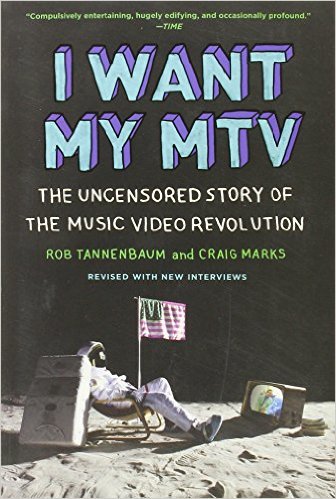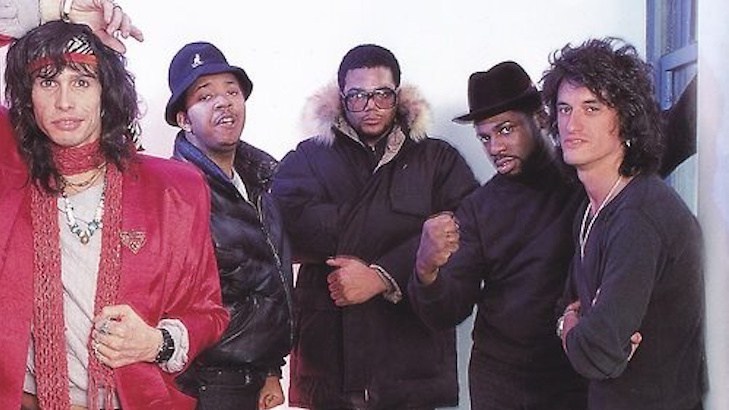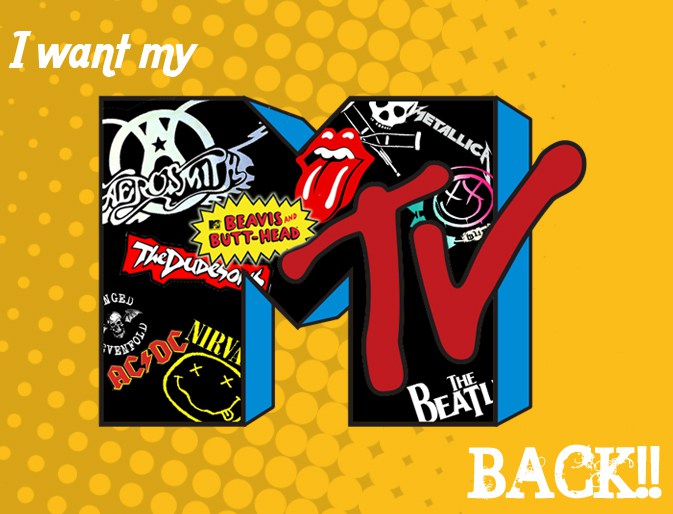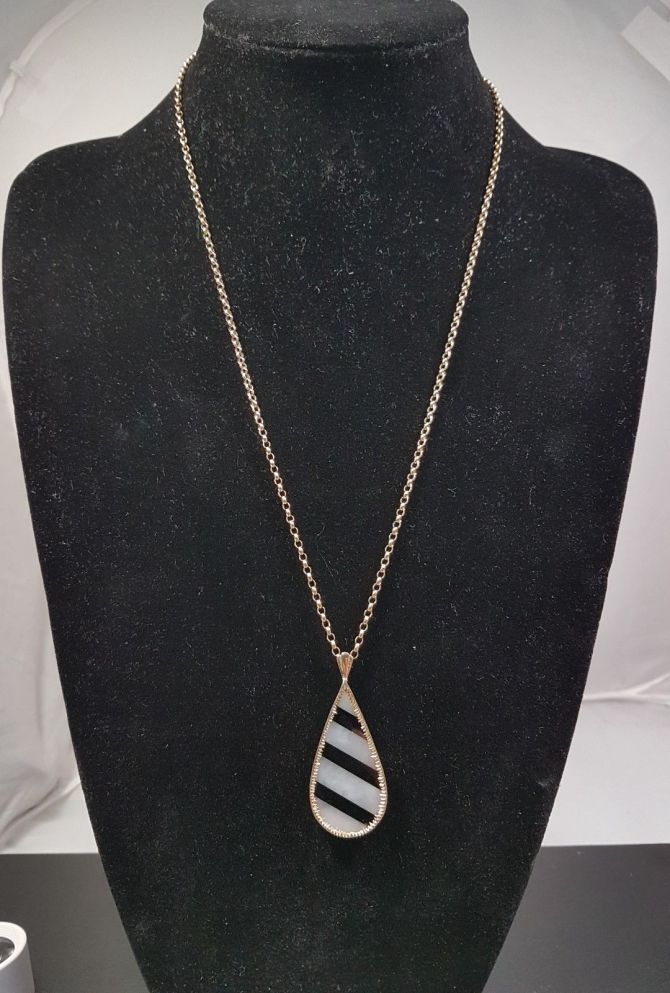As readers of this site know, I was a huge fan of MTV (see my previous posts in which I introduce my essay series, talk about the music-related shows, and rank the five sexiest videos from the glory days). I was a wee lad when the channel started – somewhere in the neighborhood of six or seven years old – and I watched it religiously for the next decade. Nothing before or since opened my world to so much life-changing material. As I stated in a previous essay, it shaped the way I listened to music and created in me a love of numerous genres I never would have heard without the channel.
I have to imagine that MTV couldn’t have been happier with their results, as I am far from the only one who feels this way. But how to convey that message to the generations of people who did not get to experience the channel in the same way my generation did? It’s a little like my parents trying to convey the wave of Beatle Mania after the band’s appearance on The Ed Sullivan Show or the sense of awe created by the Woodstock concert: I can watch the footage, and I’m a fan of many of those acts, but not living through the era makes it difficult for me to fully comprehend the power of those moments.
I’ve tried to express how big of a game changer MTV was – both in the essays I’ve already published on the site, and the half-dozen or so that are forthcoming – but I’ll fall dramatically short. Thankfully, Rob Tannenbaum and Craig Marks have done an exhaustive look back at the dozen years that MTV grew from a fledgling cable wannabe to an international juggernaut in their book I Want My MTV: The Uncensored Story of the Music Video Revolution. It truly is the next best thing to being there, and for fans who lived it, the book is filled with enough nostalgia to have readers both laughing and crying throughout.

Boasting interviews with almost four hundred key players during the channel’s first decade, the book is a running dialogue with MTV executives, musicians, veejays, video directors, record moguls, and more. And folks, we’re not talking small-time here. The story couldn’t properly be told without the people who dreamed up the idea of an all-music channel and then worked their asses off to make it happen, so their involvement is a given. Nothing said people outside of the organization had to get involved with the interviews, yet there are members of Metallica, Fleetwood Mac, Van Halen, Red Hot Chili Peppers, Nirvana and Foo Fighters, Run-DMC, Bon Jovi, Whitesnake, Motley Crue, DJ Jazzy Jeff and the Fresh Prince, and on and on and on. While there are some noticeable absences — Michael Jackson (which may not have been possible depending on when the interviews started in relation to his untimely death), Madonna, and Prince, to name a few — there are plenty of anecdotal stories from people who worked with them to fill in the gaps.

[Want to know how the Aerosmith and Run-DMC relationship came about? Read the book!]
I Want My MTV is truly a rags-to-riches story in every sense of the term. When the original team set out to create a channel that played music 24×7, they were met with resistance every step of the way. Even worse, when the channel finally got its foot in the door, the on-air personalities and production teams were learning on the fly, leading to countless issues with the quality of the product. Add in the fact that nearly every musician abhorred making videos in the early days, and it was a recipe for disaster. The plug was almost pulled numerous times, but the executives yanked numerous horseshoes out of their collective arses when all hope seemed lost – getting Mick Jagger to do an ad for them; riding the Michael Jackson hype; knowing when to get on the hair-band roller coaster, and more importantly, when to get off; starting the wildly successful game show, Remote Control; succumbing to pressure and agreeing to create Yo! MTV Raps (which, despite concern by the higher-ups that the show would be a loser of epic proportions, quickly became the channel’s number one show). What started on a wing and a prayer quickly grew into an industry giant that impacted music for years to come.
As one would assume, the book is laid out chronologically. There are almost no lead-ins or commentaries by the book’s authors at the start of each chapter; instead, a brief description of the topic is given before jumping right into the mosaic of interviews. Tales of sex, drugs, and rock & roll are prevalent, as are the meteoric rises of acts that sometimes deserved their accolades but oftentimes were the result of video style over substance. The inner workings of the channel were fascinating to explore, whereas the stories about the bands and veejays were frequently mixed with humor, even if the topic wasn’t necessarily positive. For example, chapter 21 of the book is entitled “A Whopping, Steaming Turd: The Worst Video Ever Made,” which details the creation of Billy Squier’s video for “Rock Me Tonite.” Prior to the video’s release, Squier was in the midst of a successful career; afterwards, his downfall was almost immediate, putting him on the outside looking in from that point forward. While it’s a funny story to hear from each of the constituents, I have to imagine it wasn’t an enjoyable experience for Squier to relive those moments with the interviewers.
[Phew. Not sure how I missed this stinker back in the day, but it was probably for the best.]
But all great things must come to an end, and MTV was no different. Eventually music videos were replaced by other forms of programming, such as House of Style and the Spring Break debauchery, which garnered huge ratings in comparison. The final nail in the coffin was driven home when MTV ventured into the world of reality TV (in fact, the case could be made that MTV was the channel that got the ball rolling with its Real World show). As ratings moved up and up, music videos get less and less airplay, which in turn meant the “M” in MTV was going the way of the dodo bird. It was around this time that I started moving away from MTV, making a place at the table for the droves of viewers who clamored for less music and more drama.

And therein lies the bittersweet nature of my affair with the channel: MTV proved to be a wonderful lover for a time, but then she got disinterested and moved on to bigger and better things. Then again, I’m not sure the channel could ever hope to replicate the freshness of the idea that came to fruition in the 80’s and early 90’s. As my friend, Mark, said after I finished the book…”Would we really want to sit around and watch Meghan Trainor videos all day?”

[Touche, old pal. Touche.]
I Want My MTV is a *fantastic* book which manages to be informative, funny, and sad all at the same time. I kid you not, I got a little choked up at various points in the book, only to laugh out loud at other spots. While it cannot bring back the Golden Age of Music, it will make readers remember all the good times that were had as a generation of kids “watched music” all day long. The book earns a 10 out of 10, and I hope you’ll give it a try, especially if you enjoyed the channel as much as I did.
Order the e-book.
Order the paperback.
Order the audiobook (this is the route I went, and it’s *very* well done).
Until we meet again…
Andy
Advertisements Share this:- Books
- Music
- Reviews





